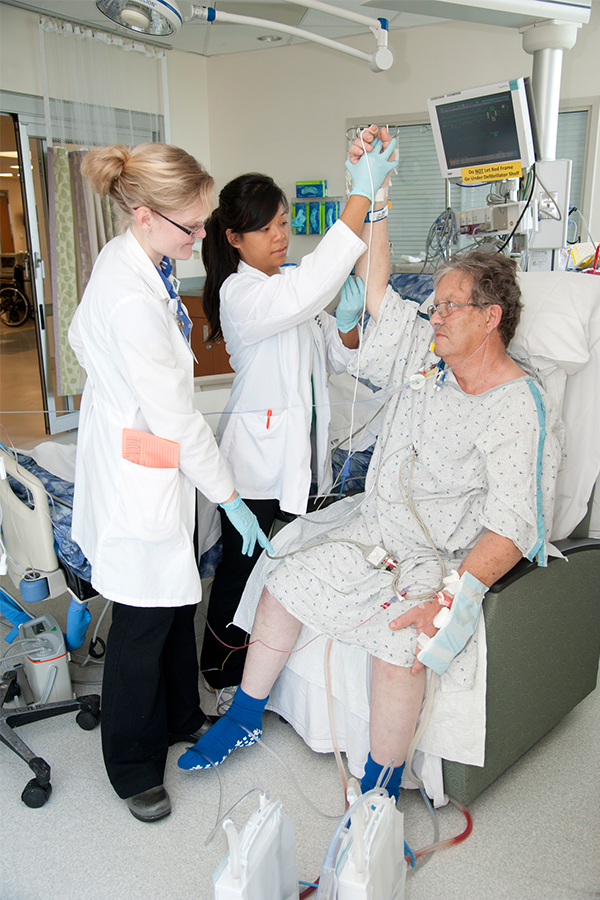The Clinical Education program relies on partnerships between the academic program and clinical partners around the globe to create experiential learning that challenges students to think critically, integrate concepts and techniques into clinical care, and to reflect on clinical experiences. The clinical education courses are an integral component of the curriculum where students develop their professional, communication, patient examination, diagnosis, and interventions skills.
Clinical Education Evaluation
The Program in Physical Therapy is committed to maintaining the high quality of our clinical education program. The clinical education team continually strives to enhance the clinical education program through the following strategies:

- Collaboration between clinical and academic faculty in developing curriculum for experiential learning that fosters clinical reasoning, inquiry, and ethical decision making.
- Development of diverse clinical partnerships to ensure exposure to the depth and breadth of the physical therapy profession.
- Active student participation in preparing for, planning, and evaluating their clinical learning experiences.
- Routine assessment of the Clinical Education Team performance by clinical instructors and students.
- Periodic curriculum feedback from clinical partners to ensure alignment with the demands of the contemporary clinical environment.
Clinical Course Curriculum
Students participate in early integrated experiences and progress to four full-time experiences throughout the curriculum. Each clinical experience is detailed below.
These part-time experiences occur within the first year of the curriculum; ECE I runs in the Fall, and ECE II runs in the Spring. All learners must pass both semesters of the Early Integrated Clinical Experience, and all coursework completed successfully before a learner may continue on to Clinical Education I.
The full-time clinical experiences allow students to practice professional behaviors and examination and intervention skills.
Clinical Education I (Ce I) and Clinical Education II (CE II):
Both of these full-time clinical experiences are eight weeks long. CE I occurs at the end of the first year of didactic preparation (May to July) and CE II occurs following the Fall of the second year (January to February)
Clinical Education III (CE III) and Clinical Education IV (CE IV):
CE III and IV are the full-time terminal clinical experiences that occur at the end of the 2nd year of didactic education. CEIII runs for 10 weeks from July to September. CE IV runs for 12 weeks from October to December.